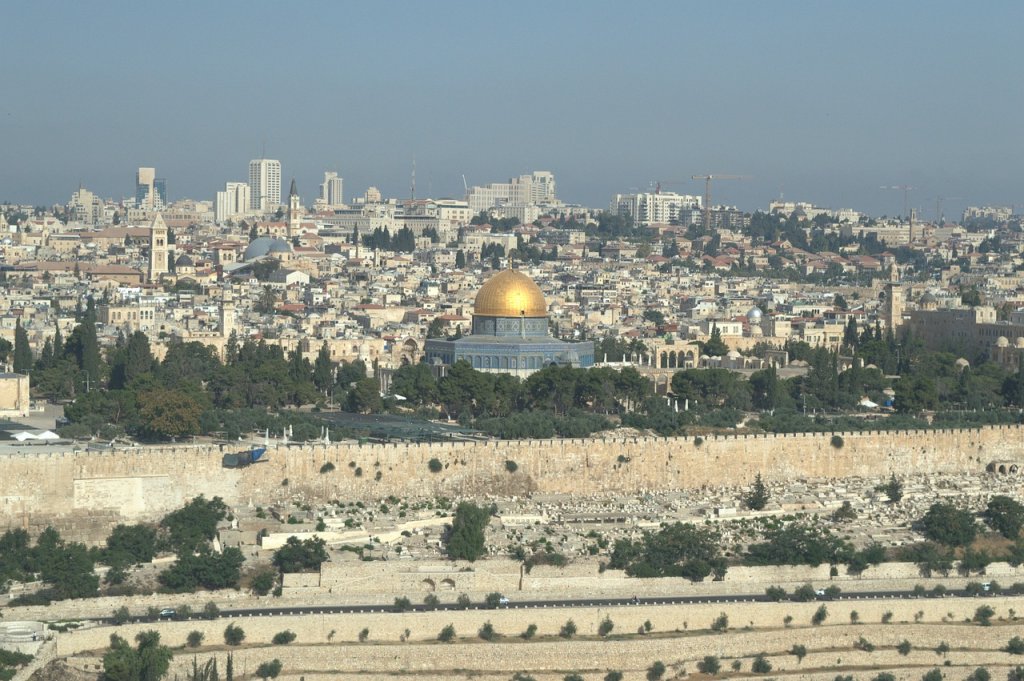
The Middle East was literally on pause since the rumors surfaced and waiting for the American project to be completed. The situation was like Samuel Beckett’s Waiting for Godot. And, Godot was likely to be the Israeli-Saudi normalization, the Crown Jewel of the Abraham Accords.
While no one yet knew the goals of the Abraham Accords, Israel had drawn into her historic fight again between its establishing actors emanating from the independence period. Netanyahu-led Coalition was representing Irgun’s, which is one of the two right-wing, paramilitary Revisionist Zionist organizations from the establishment period, never-ending fight to hold on to the power since the Altalena incident. Altalena was sunk by the Israeli Defense Forces when it was carrying arms and Irgun fighters from Europe.
The all Right Coalition was all for religion, all for Judea and Samaria, all for the historic homeland, all against a two-state solution, and of course all for undivided Jerusalem. So Netanyahu and his companions were the Jerusalem based ultra-nationalist camp. On the other hand, the opposition was Tel Aviv. It was Haifa, it was Techion and start-up nation. Of course, the Opposition was not the Haganah, the secret armed branch of the founding organization, the Jewish Agency. But in the eyes of the right-wing electoral, the opposition represented the secular, elitist, Ashkenazi establishment. In that sense, for the right-wing electoral, the Opposition was representing the Kibbutz, the IDF, the secular and gender-equal left who try to propose the land of Israel to Palestinian Arabs in turn for peace.
Opposition had been on the streets for nearly a year and from their point of view right-wing coalition threatened both Israel’s democratic character and the country’s future. Minister of Justice Yariv Lavin, Minister of Finance Bezalel Smotrich, and Minister of National Security Itamar Ben Gvir were pointed by the opposition as public enemies. Besides, a self-declared security specialist, Prime Minister Netanyahu who was not known as a radical, became a target not only for his lawsuits but also for his partners’ ultra-nationalist ideas and acts.
Israel held the holy grail of peace in her hands while an internal power struggle shook her body for quite a while, close to touch but very far away to reach. That was the reason for Netanyahu’s try to grip White House’s appreciation. All in all, the Abraham Accords was an American project.
For the Crown Jewel, internal conflicts were resolved with an old-fashioned palace coup. Muhammad Bin Salman, was holding tight to the Kingdom’s power. As a young leader, it is likely that he would be around for quite a while. However, he needed to get assurances to enhance his reign against his foes and his friends alike. A Chinese brokered process with Iran and an American brokered process with Israel enhanced his long-term project to create a modern Kingdom, a powerhouse in the middle of East and West. But the keyword for all three actors, Iran, Israel and Saudi Arabia, was “nuclear” as Muhammad Bin Salman makes that clear in his recent FOX interview.
As a result, Iran’s nuclear program and Israel’s ambiguity on her nuclear stockpile had normalized Saudis’ nuclear ambitions. This was a problematic situation for Israel. Even though the peace process might include the active control of the US on Saudi nuclear program, as a nation of largely displaced persons and Holocaust survivors and their extended families, Israel would refrained from having both Shia and Sunni camps nuclearized. Furthermore, Saudi’s history of throne games and 9/11 memories might haunt Israelis more.
On the other hand, the region historically held onto the global system through religious and sectarian politics. For a short while, mainly due to USSR foreign policy, secular Baath regimes blossomed around the Arab Middle East. However, with the decline of the USSR, the region turned back to its historical division lines. The USA was trying to get the most out of it by developing a web and unifying Jerusalem and Mecca against a common other, Shia Iran. Iran, a hydrocarbon-rich country, also held the keys both to the Gulf, the Caspian Sea, as well as to the Indian Ocean. It was pretty obvious that Washington had to contain Iran in the region. But being a seasoned player in the region, Cold War, Gulf War, Iraqi War, and numerous operations, made Washington a cost-efficient actor. So burden-sharing had to be a top lister on Washington’s list. At that point, the Abraham Accords became meaningful. where an alliance system was needed to answer a common enemy. Thus, Jerusalem-Mecca line was formed against Iran.
All were hit by a video game-like attack by Hamas at Shabbat Raid. There is no doubt that this is an act of terrorism. But a cool-minded analysis is so much needed. One should remember the story of “the Haves and the Have Nots”. It is all about this. On the unit level, Israel has the state, the country, and the future, Palestinians do not. Israel left Gaza for good in 2005 and has since transformed once a cozy seafront town, into an open-air prison for thousands. There is a quick take here:, The Palestinian Problem served as a chip for hard bargaining by the Anti-Israeli camp for long. So it is now crystal clear that when the handlers became closer to a deal with the Jewish State, Have Nots acted to make themselves remembered.
Certainly, Iran supports this carnage, depth of her involvement is yet unknown to the public. Just like her support to Hizballah in Lebanon, Hashdi Shabi in Iraq, Houthis in Yemen, numerous factions in Palestine, and the Syrian regime. This Shia sectarian block, except the Palestinians, in the region forms the Iranian security web against the Abraham Accords. While the signatories of Abraham Accords have their thriving economies, a wide array of international relations, and internal stability, Iran does not. So Iran putting the ball once again on the opponent’s field. As the dust settles, Iran -the center of the crisis- soon would face consequences in the Southern Caucasus, which could trigger a more mighty player, Russia to act aggressively.

Burak Korkmaz, an independent researcher focused on Israeli Foreign Policy, PhD, Turkish National Defense University, 2023. “Analysis of the Effect of the USA on the Period of Establishment of Israel in the Context of the Foreign Relations Documents”
To cite this work: Burak Korkmaz, “Turkish Foreign Policy on the Cusp of a New Era?” Panorama, Online, 19 October 2023, https://www.uikpanorama.com/blog/2023/10/19/bk/
Copyright@UIKPanorama. All on-line and print rights reserved. Opinions expressed in works published by the Panorama belongs to the authors alone unless otherwise stated, and do not imply endorsement by the IRCT, Global Academy, or the Editors/Editorial Board of Panorama.

